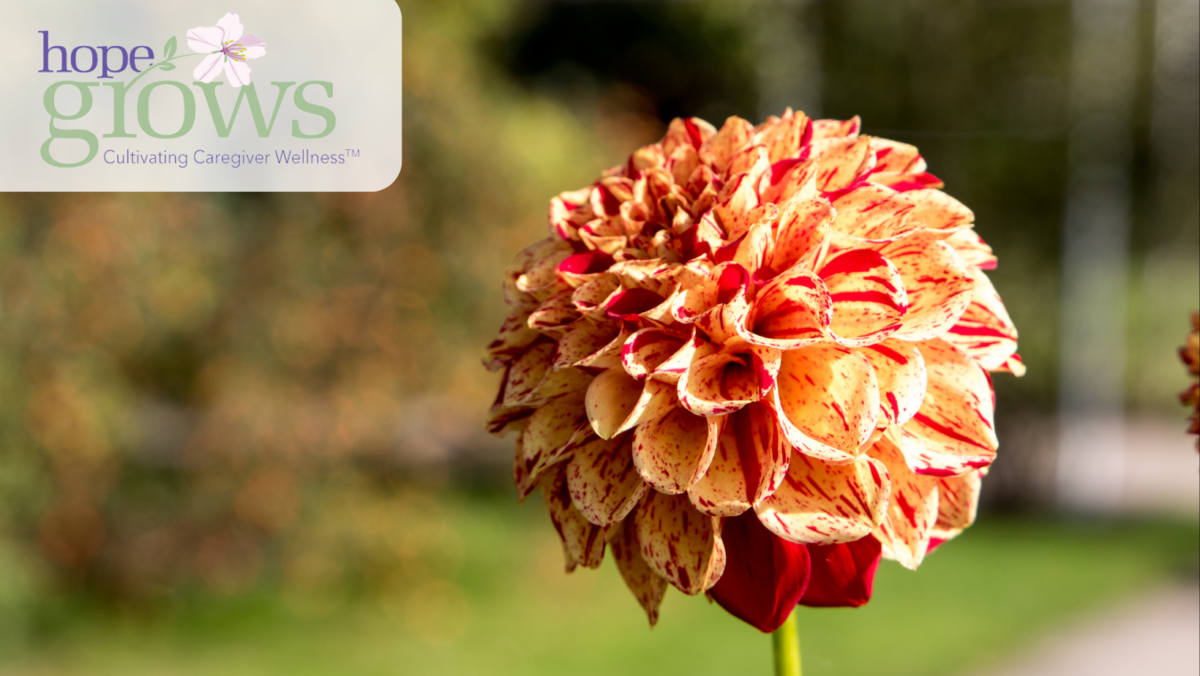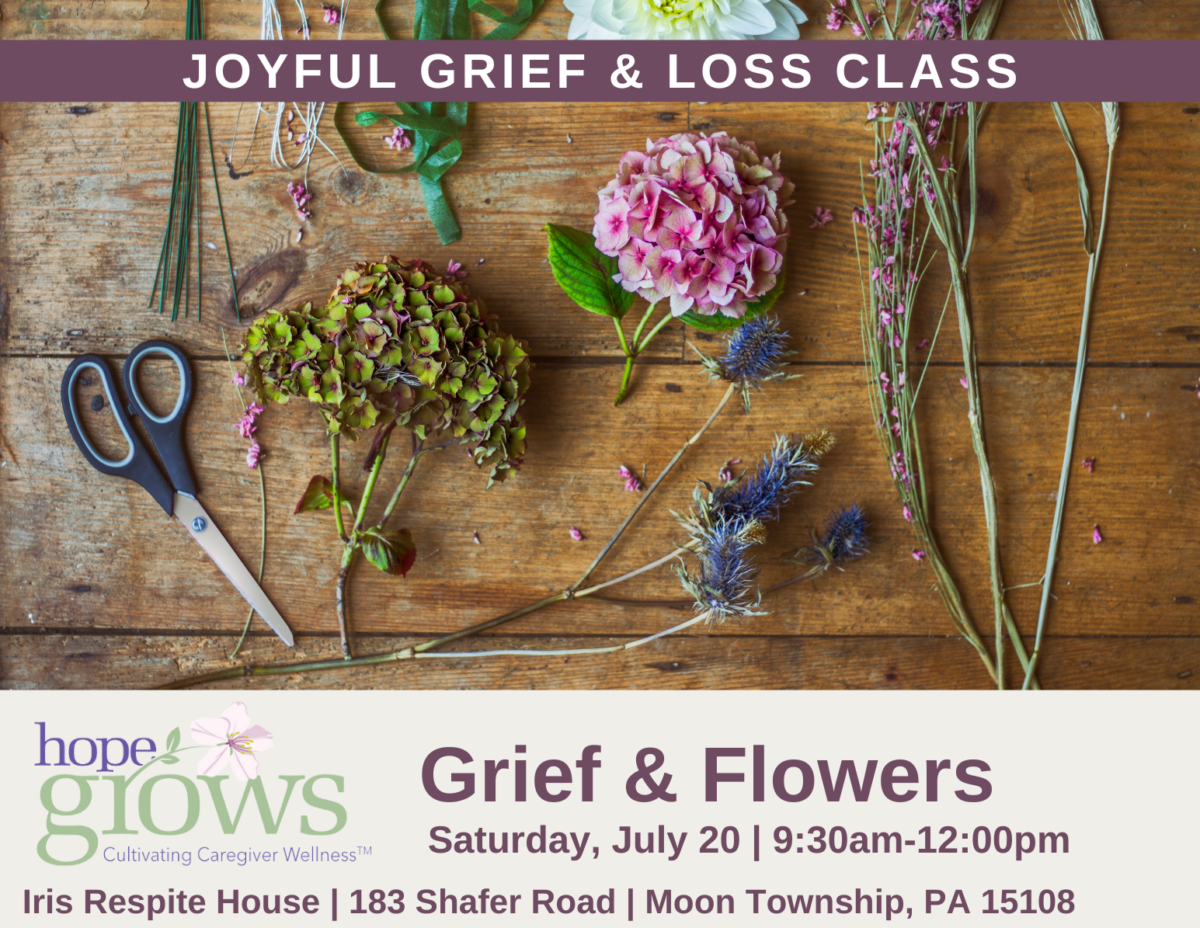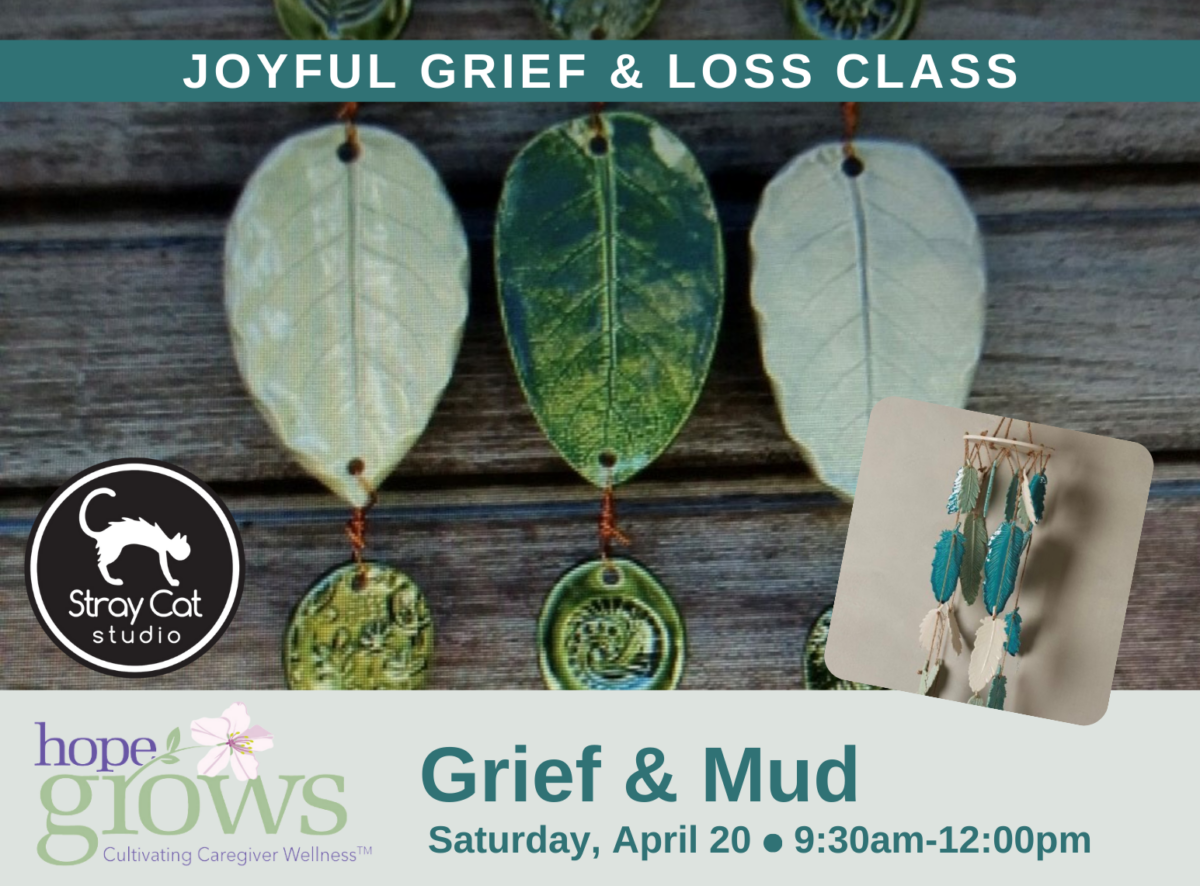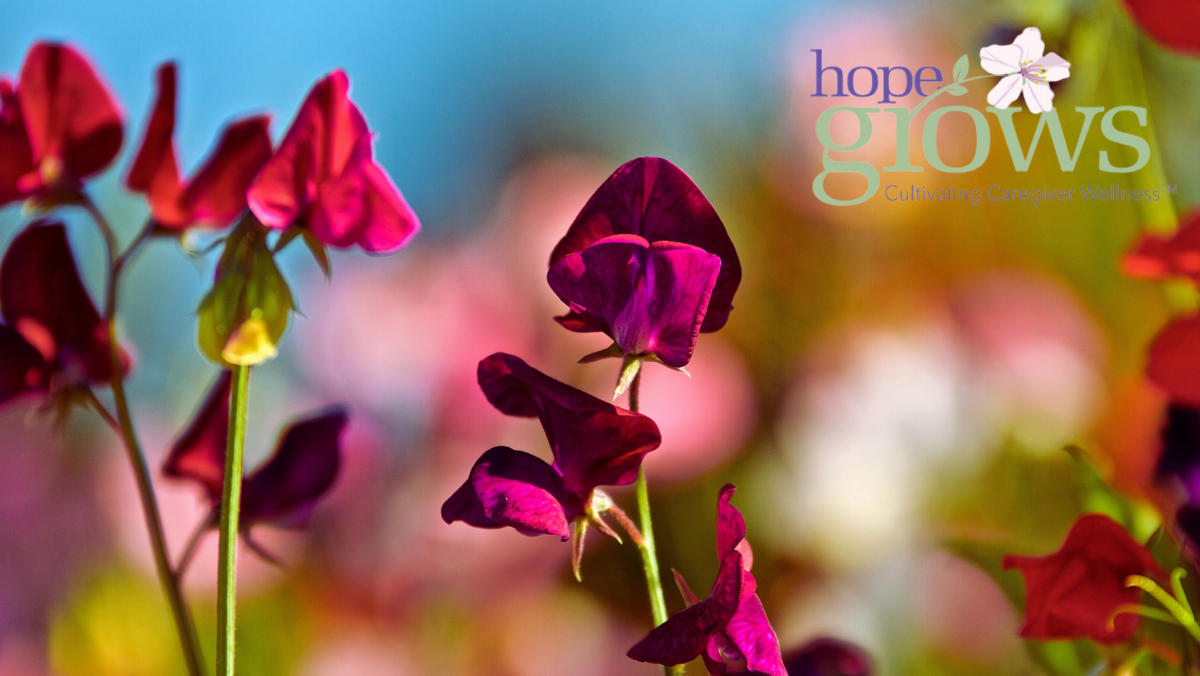Leonard Cohen, from his song, Anthem, once said: “there is a crack, a crack in everything. That’s how the light gets in.” I find this to be fascinating. As we all know, our first reaction to a significant loss is a crack, if you will, in our life, and we choose, from the pain, to be reluctant to let any light shine in.
At least it was for me. I remember when I first heard the words, “Dad has pancreatic cancer,” no light was getting through, and for a long while his dying process was handled with busy-ness and avoidance of the reality. While in the mode of visiting him and caring for him, adrenaline kept me going. I thought if I kept myself busy, attending to the family, working, visiting my dad, and taking care of all of the paperwork for him, I could avoid the inevitable: his death.
Boy, was I wrong. If you know me, watched any of the Hope Grows historical videos, or read any of my blog articles, I didn’t just mourn my dad when he died…I mourned my mom who died 20 years prior as well. You see, I was reluctant to believe she died when I was 22 years old and, more importantly, thought that if I didn’t think about her death and got on with my life, I would be just fine.
Wrong! All I did was delay my grief. It came back with a vengeance and bit me in the butt rather hard when my dad died. I mourned both of them, as if they died together. It wasn’t until I let the light shine in, did I then evaluate and learn what I had to offer from my pain.
At that time, I was reluctant; unwilling and resistant to see and learn what was ahead of my pain. Luckily for me, my dad spoke to me through a dream. I was NOT reluctant to believe in a divine intervention through that particular night’s dream. My dad loved being outside, in nature, doing something adventurous, so it was apropos that the dream was of nature. The night of his visit – dream, divine intervention, whatever you what to believe or call it – he took me for a walk in a beautiful garden. The sun rays, the light from it, if you will, was the focus, shining down on me with his smiling face in it.
After waking, I allowed my higher self to begin to see that there was something beyond the dark. I got to a place where I eventually provided a “gift of grief,” as Therese Tappouni shares in her book, The Gifts of Grief, Finding Light in the Darkness of Loss. You see, I had to address the past, the pain and loss, to heal from it. As a grief counselor and educator, I’ve always said, there is no way to heal from grief other than to go through it. And that became the journey of my grief: going through it and not being reluctant from the lesson it was teaching me. From there, my higher self allowed for the gift: the creation of Hope Grows.
So, where does the reluctancy of grieving stem from? Various ways in which we grieve, with the main one stemming from the emotional pain and heartache that comes from loss. Grieving can be emotionally draining, not to mention it can affect us cognitively, physically, spiritually, socially, financially, and behaviorally. Other than the avoidance of the emotional pain and heartache, reluctance can come
from:
- Time and Energy Constraints: Other obligations, such as work or family requires a significant investment of time and energy.
- Financial Concerns: Closing out an estate is expensive and time consuming; putting death affairs in order is daunting.
- Lack of Support: Mourning the loss from death leads to feelings of isolation and burnout. Even with adequate support from family, friends, or community resources, grievers may feel reluctant to reach out.
- Impact on Personal Life: Balancing all duties with personal needs and aspirations can be challenging. Grievers may feel reluctant and/or think they have to sacrifice their own goals, hobbies, or social life to process loss.
- Health Concerns: Mourning a loss can take a toll on one’s physical and mental health. Reluctance may arise from concerns about the impact on one’s own wellbeing.
Addressing reluctancy with grief often requires a multifaceted approach that involves recognizing and addressing the underlying causes, seeking support from others, and implementing strategies to manage stress and maintain a healthy balance between all of life’s responsibilities, including personal well-being. This can include seeking respite care, joining support groups, setting boundaries, and practicing self-care techniques. With all of that, Hope Grows is here to support you through your loss and to help with any reluctancy you may be experiencing.
I would be remiss if I didn’t mention our essential oil and flower for the month of March. Oregano essential oil is powerful. According to Spiritual Scents, “The calming properties of oregano oil can relax the mind, balance the emotions, and banish mental fatigue.” Wealthful Mind tells us that the oil is “an herb of joy, safety and lightness of spirit.”
Now let’s take our flower of the month, the sweet pea. Sweet peas are popular ornamental plants grown in gardens and used in floral arrangements for their beauty and fragrance. Symbolically, sweet peas are associated with happiness, pleasure, gratitude, friendship, and delicate beauty – the opposite of what we feel when we are grieving. Pleasant feelings are helpful for any reluctancy.
If you find yourself in a dark place and need to see the light, consider the above blog, talk to someone about the use of oregano oil, and seek out growing some sweet peas this spring. Jess, our Hope Grows, horticulturist, could talk with you about the growing properties of sweet peas and I can chat with you about oregano essential oils.
Written by Lisa Story, MSCP, LPC, CT
Hope Grows Founder & Clinical Director
Disclaimer: This site offers information designed for educational purposes only. You should not rely on any information on this site as a substitute for professional medical advice, diagnosis, treatment, or as a substitute for professional counseling care, advice, diagnosis, or treatment. If you have any concerns or questions about your health, you should always consult with a physician or other healthcare professional.






